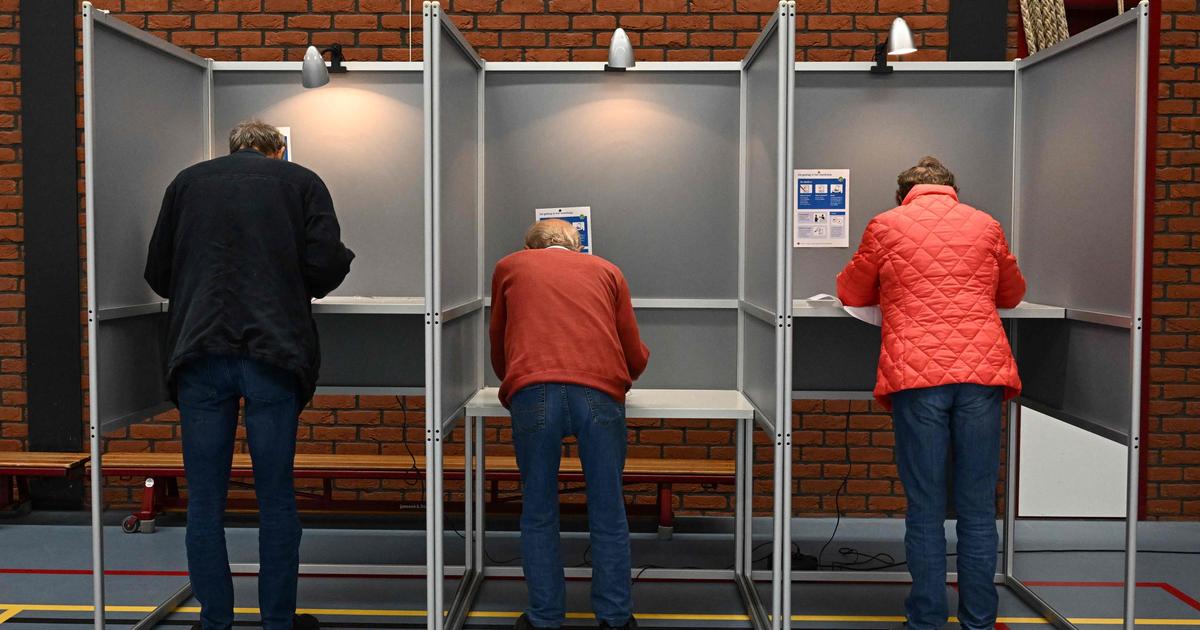The European elections kicked off on Thursday in the Netherlands, marking the beginning of a four-day electoral marathon across the European Union to elect 720 Members of the European Parliament (MEPs). The atmosphere is charged, spurred by the expected rise of nationalist and far-right parties. With nearly 370 million Europeans heading to the polls, the climate is heavy, partly influenced by ongoing Russian disinformation campaigns.
The electoral process started under the crisp morning sun in The Hague, where early voters eagerly cast their ballots. Claudia Balhuizen, a 42-year-old engineer, expressed the urgency of the situation, emphasizing the need for environmental responsibility and a proactive stance against the rise of the far right. In contrast, Simone Nieuwenhuys, a 48-year-old civil servant, voiced her support for the eurosceptic Freedom Party (PVV) led by Geert Wilders, highlighting the growing trends of nationalism and calls for sovereignty.
The Netherlands is not alone; in France, Jordan Bardella of the National Rally is leading the polls, whereas Italy sees Prime Minister Giorgia Meloni's post-fascist Fratelli d'Italia party as potential victors. Nathalie Brack, a political science professor at the Free University of Brussels, noted that the significant aspect of these elections is the 'normalization' of radical right-wing ideas, which have permeated mainstream political agendas.
One of the first crucial tasks for the newly formed Parliament will be to determine the 'top jobs' within the EU institutions, a decision expected at an upcoming summit in June in Brussels. Ursula von der Leyen, the current President of the European Commission, is seen as a strong contender for re-election. However, the traditional Brussels negotiations could yield last-minute surprises. Regardless of the outcome, cohesion and a swift resolution are essential for maintaining the EU's global image as a stable and democratic entity.
'Cohesion against Putin' has become a rallying cry, encapsulating the broader geopolitical stakes of these elections. Sebastien Maillard of the Jacques Delors Institute emphasized the need for European unity not only against Russia but also in dealing with China and future U.S. politics, potentially facing another term under Donald Trump.
Despite the likelihood that the grand coalition of the three main political groups (right, socialists, and centrists) will retain its majority, its influence could be diminished, necessitating alliances with other factions. Current surveys suggest that the European People's Party (EPP) will remain the leading force, closely followed by the Social Democrats. Meanwhile, the third position, currently held by Renew Europe, is vulnerable to challenges from far-right groups like the European Conservatives and Reformists (ECR) and Identity and Democracy (ID).
The participation rate is a key metric, particularly in light of the 2019 surge where over 50% of eligible voters participated. As per the latest Eurobarometer, about 70% of Europeans view the EU as a 'haven of stability,' and a promising 71% of citizens express their intention to vote, an encouraging sign compared to previous years.
- In Italy, preparations for the European elections are well underway, coinciding with local administrative and regional elections. Voting will take place over two days, with special provisions for off-site students who registered by May 5th. Over 51.7 million Italians are eligible to vote, with numerous logistical arrangements, including discounted travel rates, put in place to facilitate voter participation.
- Italian voters will elect 76 MEPs out of the total 720. The country is divided into five electoral constituencies, each contributing a proportionate number of deputies based on population. A preference voting system is in use, allowing voters to select up to three candidates from different sexes within the same list.
- Additionally, more than 17 million Italians will participate in local administrative elections, affecting 3,715 municipalities. The regional elections in Piedmont will see 3.6 million voters electing both the Regional Council and the President. The new mandate rules allow smaller municipalities more flexibility in term limits.






